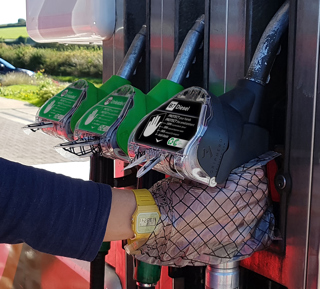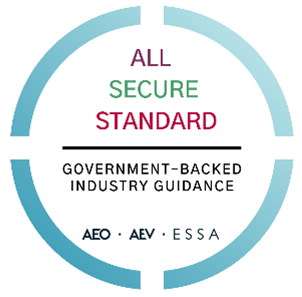This feature originally appeared in the May 28, 2020 edition of Fleet News. Read the digital issue of the magazine by clicking here
By Darren Hodson, Partner, Smith Cooper Corporate Finance
The Covid-19 pandemic has disrupted the globally integrated automotive sector significantly, exposing challenges never experienced before.
The pandemic continues to disrupt business as usual and leasing companies have been hit hard.
Many of their customers have paused trading and assume that they can automatically defer lease costs. If they do, there is very little redress, and this means there is a knock-on impact on debt providers to those leasing companies. Cash, as ever, is king.
This article provides a comprehensive guide to Covid-19 Government funding initiatives that are available for those operating in a sector facing pressure. The flow chart aims at highlighting the breadth of areas available from the Government that can provide much-needed cash.
Getting the cash you need through Government loan schemes
Alongside furloughing, the clearest route for additional funding is through one of the loan schemes. These schemes are changing daily.
It is important to understand that these are not Government loans. The funds are provided by the banks/ lenders directly – the Government is guaranteeing the loans.
Applying for a loan is very much dependent on each lender’s own criteria and there are even significant variations between different relationship managers within the same institutions.
Banks have experienced a colossal increase in loan applications since the schemes were launched – 15-20 times the norm.
This has led to a backlog of responses – the lenders just do not have the capacity. It is also the case that small loans, those that are higher risk, are the biggest volume of applicants.
Hopefully, the Government has improved this by introducing the Bounce Bank Loan Scheme (began 4 May). This provides a 100% guarantee for any loan up to £50,000.
This will help deploy funds to sole traders quickly and many applicants have already received money within 12 hours of applying. Importantly, as loans are provided through an online portal, it will remove a significant administrative burden from the banks.
For most in the leasing sector, the main loan schemes available are CBILS and CLBILS. They are similar schemes.
Importantly, there has been a few fundamental changes to how these work in the past few days. So, even if you have been rejected for these loans in the past, the British Business Bank is now recommending companies reapply.
CBILS (Coronavirus Business Interruption Loan Scheme – British Business Bank)
- Applicable to businesses with turnover less than £45 million.
- Loans of up to £5m with 80% Government guarantee.
- Available in the form of business loans, overdrafts, invoice finance and asset finance.
- The first 12 months of interest and lender-levied fees are covered.
- More than 40 accredited lenders.
The Government has removed the need for lenders to apply a forward-looking test to obtain the guarantee. Banks no longer are required to assess forecasts to assess the viability of a business! However, as it is still the banks’ own funds that are being lent – and some of that money is at risk – the use of such a test will remain at their discretion, meaning they may wish to review on a case-by-case basis.
CLBILS (Coronavirus Large Business Interruption Loan Scheme – British Business Bank)
- Applicable to businesses with turnover between £45m-£500m.
- Loans of up to £200m (extended this month from the original £50m) with 80% Government guarantee.
- Available in the form of business loans, overdrafts, invoice finance and asset finance.
- Repayment terms of up to three years.
Given the complexity of lending within the leasing sector, our advice is that you should still produce forecasts to ensure the viability of your own business. Security and personal guarantees can still be requested (for loans above £250,000).
Crucially, businesses must be able to justify that the funding required is because of legitimate business interruption, and not for other reasons.
If you are rejected by your incumbent funder, other debt providers are still available.
Utilising tax measures for financial fluidity
There are other Government-backed schemes that can help cashflows. We highlight some here:
Research and Development Tax Credits
Some fleet companies invest in technology around vehicle tracking, maintenance software, development of specialist vehicles, or CRM software. There could be arguments for a corporation tax reclaim for these elements. If you claim R&D, we recommend submitting claims quickly; if you do not, you should check if you qualify, as you may be able to obtain a backlog of overpaid tax.
VAT deferral
If you are a UK VAT-registered business and have a VAT payment due between March 20, 2020, and June 30, 2020, you have the option to defer the payment until March 31, 2021. VAT refunds and reclaims will be paid by the Government as normal.
TTP (Time-To-Pay)
In addition to VAT, for all other taxes (e.g. corporation tax, PAYE, national insurance), you can contact HMRC and ask for time-to-pay. You will be charged interest on amounts deferred and we recommend you think about a repayment plan before speaking to HMRC as it improves your chances of success.
Loss carry back claims
In the event of a trading loss, companies can seek relief by carrying the loss back to a previous profit-making period and reclaim the corporation tax from that period (this can include capital allowances). This needs to be within the past 12-month accounting period, where the company was carrying on the same trade. However, you can change your year-end to potentially accelerate the loss relief.
Innovate UK grant
The Government has also launched a £750m Covid-19 ideas grant scheme, whereby 80% of the cost of projects which seek to mitigate the impact of CV-19 can be reclaimed. Those in the automotive sector may have opportunities here.
Steps to preserve business continuity
Our recommendation for obtaining funding is to plan ahead and act early, providing the funder with, among other things, information on pre-Covid performance, measures implemented to preserve cash and jobs, and a forecast showing how the business can trade out of the crisis while servicing the existing and new debt burden.
Optimise working capital whilst identifying and implementing measures that lessen the pressure on cash flow. Identify sources of collateral that may secure access to additional borrowing and engage with active scenario planning that reflects the current level of market uncertainty.
Essentially, during this unprecedented time, you need to demonstrate you are in control of each of the aspects that fall within your control and influence, and that you are taking all possible action to take up all available reliefs and grants and minimise cash leakage.
Smith Cooper is tracking all Covid-19 Government initiatives and further information can be found on (https://www.smithcooper.co.uk/news-insights/covid-19-support-for-businesses/).
- Darren Hodson is a partner in Smith Cooper’s award-winning Corporate Finance division. Equipped with more than 20 years of experience, Hodson advises clients on a range of corporate finance matters including raising finance, acquisitions, management buyouts, corporate disposals, and strategic reviews, driving tangible results. He is a specialist in the automotive sector and has a deep understanding of the leasing sector through many M&A transactions. Smith Cooper is a boutique accounting practice that has a large base of automotive clients.



















Login to comment
Comments
No comments have been made yet.